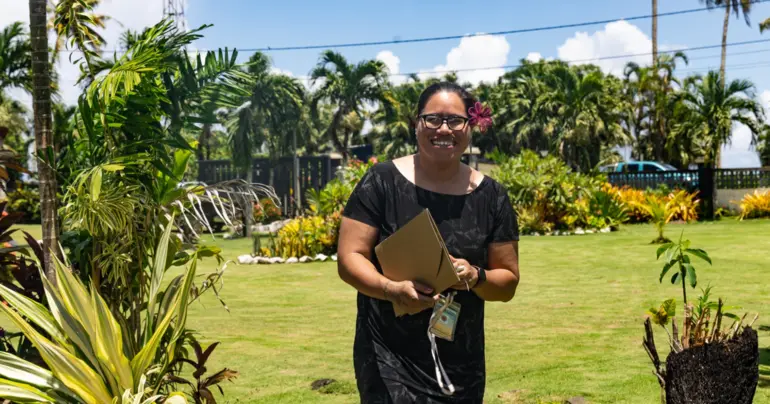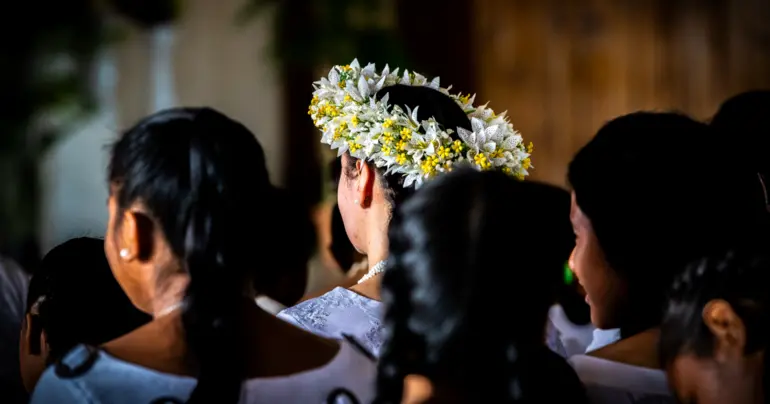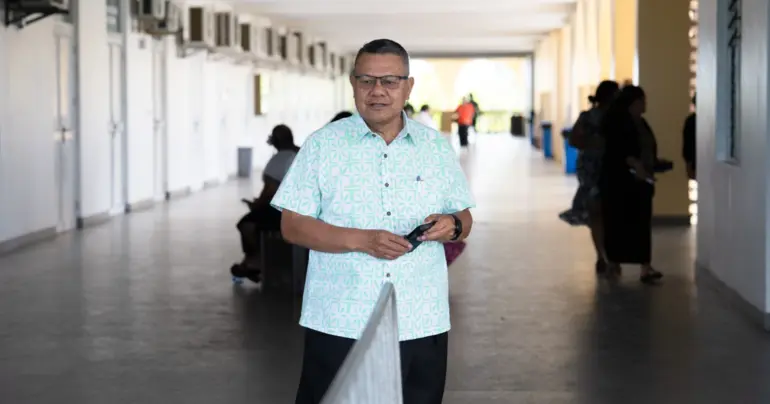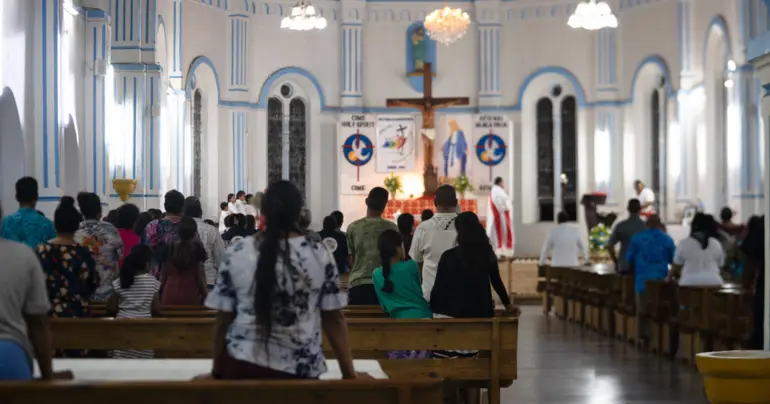Australia, N.Z. must prepare for climate refugees: researcher
 By Sapeer Mayron
•
30 October 2020, 1:00PM
By Sapeer Mayron
•
30 October 2020, 1:00PM
Australia and New Zealand must review their policies relating to members of the Pacific diaspora before they tackle how to accommodate future climate change refugees, a researcher says.
Dr. Siautu Alefaio has just won a Rutherford Discovery Fellowship, an NZ$800,000 award to study how the Pacific’s diaspora responds to disasters over the next five years.
“I think that actually, leaders should think about the current policies that exist that are causing a bit of havoc currently,” she said.
“I would say first look at your 501s coming to New Zealand and causing havoc in the gang space.”
"501s" are so named because of a section of a new Australian immigration law that allows for the removal of convicted criminals on "good character" grounds. Deportees can be returned to New Zealand where they were born, regardless of many spending significant proportions of their lives in Australia although never attaining citizenship.
Many end up in New Zealand, where they may have been born or raised but have no community or family. This has proven damaging to Pacific people, in particular, Dr. Alefaio said.
“They literally went over when they were babies to Australia. They have no family left in New Zealand but they are deporting them because they have done something.
“My thinking is if they are going to try and set up something for climate change refugees, but they are deporting Pacific people, how can they create trust with the Pacific region if they are doing this behaviour?"
She said she agrees that Australia needs to look ahead at the looming issue of climate change forced displacement and migration, but there are existing issues that need addressing.
“Leaders of countries like Tokelau and Tuvalu who are at the brink of climate change will be looking to see whether or not they can trust these countries, and what kind of policies they have in place.
“If you have Tokelau or Tuvalu’s young people growing up in Australia and get into some trouble and get deported, where will they go if they were climate change refugees?”
This month, Australian policy thinkers proposed Australia offer more pathways to residency and work visas for climate change stricken nations in the Pacific Islanders.
In their new policy paper released this month, Professor Jane McAdam and Jonathan Pryke from the Andrew & Renata Kaldor Centre for International Refugee Law and the Lowy Institute argue displacement from climate change is inevitable, and Australia has to prepare early.
They say that improving the Seasonal Worker Programme and Pacific Labour Scheme to allow workers to progress towards residency, allowing families to travel with visa holders and establishing a humanitarian visa too are good ways to start preparing.
Dr. Alefaio agreed both Australia and New Zealand need to prepare for the potential wave of climate change refugees, as those who do leave their islands will likely follow their families in the diaspora, which are largely in Australia and New Zealand.
But she wants to see the various issues at play looked at more holistically, instead of in isolation from each other as she sees it.
“If you think about an ecosystem like Samoa, you think about the village and how they all operate, everything is connected to everything.
That is how we need to think about climate change as well – climate change, disasters, poverty, violence, they are all in an ecosystem and impact on each other.
“If we don’t have good policies currently in place for Pacific people currently in Australia then […] how will new policies make any difference?”
Dr. Alefaio said Pacific diaspora communities are already doing a lot of the work required to deal with the humanitarian and development needs of their growing communities, many of whom are new migrants.
But they need to be better resourced and listened to more by policymakers, she argues, and they need ways to connect to each other and learn from each other too.
“The key is if we can support the diaspora really well in their communities, then they themselves will develop the solutions for their families.
“They are the ones that will offer up the most practical solutions because they will end up dealing with the issues every day.
The policy paper suggests using existing labour schemes which offer short and medium-term visas to Pacific Islanders to start creating longer-term migration pathways including residency and citizenship, and for some workers to be allowed to bring their families with them when they move.
Dr. Alefaio said these kinds of measures will help manage the climate change caused migration wave but it can often “skirt” the issues that migration brings, which is around entire communities, not individuals.
“It’s like these things can be used for people to adjust, but whole cultures have to adjust.
“I don’t think [the programmes] are actually a solution to transitioning around climate change.”
Instead, speaking to people who use the seasonal work or labour schemes about how they experience them or use them can help policymakers decide if they can be pathways to long-term life away from the islands, she said.
Dr. Alefaio is a psychologist practitioner, a Senior Lecturer at the School of Psychology at Massey University and Global Fellow of the Center for Human Rights and Humanitarian Studies at Brown University.
In 2016, she founded Navigate In Unity Pacific approaches to Community-Humanitarians (NIUPatCH), which is a research collective.
She said her research grant will allow her the “breathing space” to focus on an area she has already dedicated the last four years.
She will be able to connect mainstream disaster relief organisations with Pacific leaders in the diaspora and more deeply explore how the community responds to the islands in times of need.
Tags
 By Sapeer Mayron
•
30 October 2020, 1:00PM
By Sapeer Mayron
•
30 October 2020, 1:00PM











